Reconstruction 1860-1880
History
Andrew Johnson
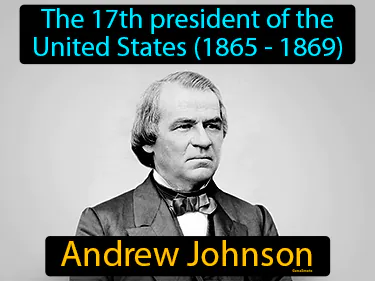
The 17th president of the United States 1865 - 1869. Andrew Johnson. Andrew Johnson was the president who took office after Abraham Lincoln was assassinated.
Black Codes
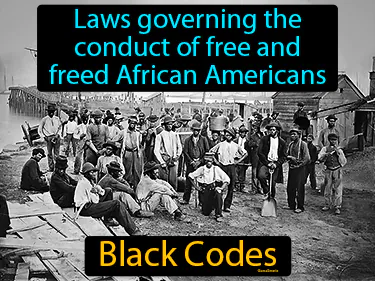
Laws governing the conduct of free and freed African Americans. Black Codes. Black Codes were laws in the United States after the Civil War that restricted the freedom and rights of African Americans.
Civil Rights Act of 1866
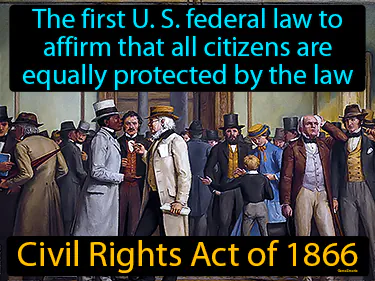
The first U.S. federal law to affirm that all citizens are equally protected by the law. Civil Rights Act of 1866. This law declared that all people born in the United States were citizens with equal rights, regardless of race.
Compromise of 1877
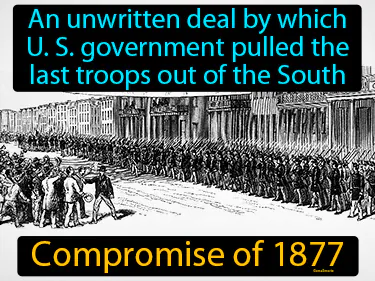
An unwritten deal by which U.S. government pulled the last troops out of the South. Compromise of 1877. It marked the end of Reconstruction by withdrawing federal troops from the Southern states, allowing the Democrats to regain political control.
Enforcement Acts
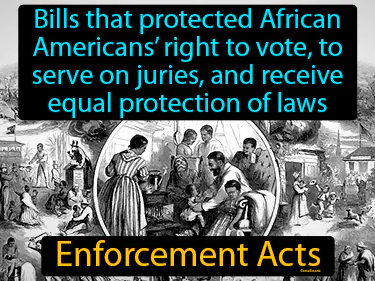
Bills that protected African Americans right to vote, to serve on juries, and receive equal protection of laws. Enforcement Acts. The Enforcement Acts were laws passed in the early 1870s to combat the Ku Klux Klan and ensure African Americans' rights under the 14th and 15th Amendments.
Fifteenth Amendment
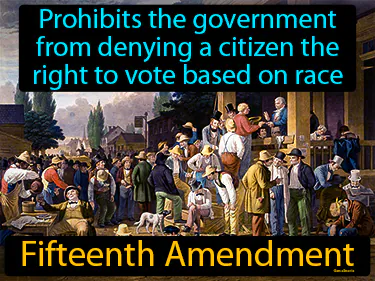
Prohibits the government from denying a citizen the right to vote based on race or color. Fifteenth Amendment. The Fifteenth Amendment is a historic law that granted African American men the right to vote in the United States.
Fourteenth Amendment
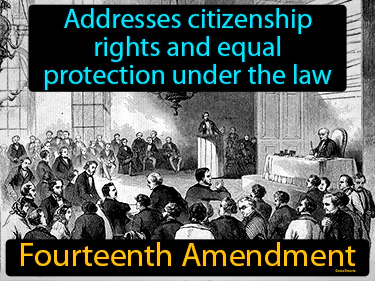
Addresses citizenship rights and equal protection under the law. Fourteenth Amendment. The Fourteenth Amendment to the United States Constitution guarantees equal protection and citizenship rights, ensuring everyone is treated fairly under the law regardless of race or background.
Freedmens Bureau
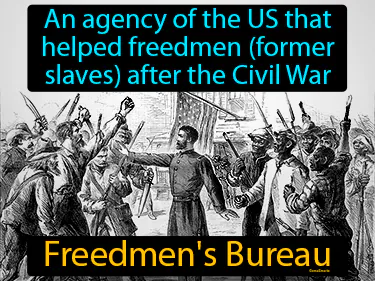
An agency of the US that helped freedmen former slaves after the Civil War. Freedmen's Bureau. It was established to assist former slaves in the South by providing food, housing, education, and legal support.
Hiram Revels
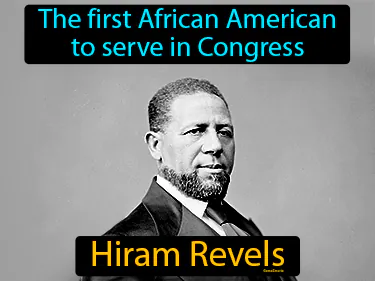
The first African American to serve in Congress Hiram Revels. Hiram Revels was a pioneering politician who became the first black U.S. Senator during Reconstruction.
impeachment
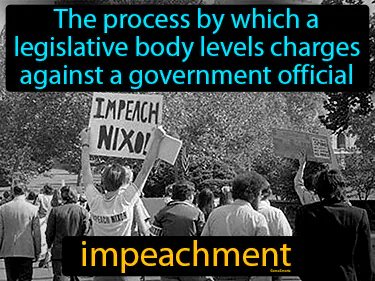
The process by which a legislative body levels charges against a government official is called impeachment. Impeachment is when a government official is accused of wrongdoing and can be removed from office if proven guilty.
Jim Crow laws
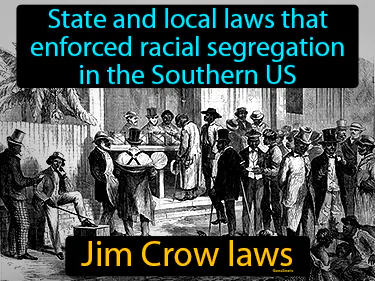
Laws that enforced racial segregation in Southern states. Jim Crow laws. Jim Crow laws were rules that separated Black and white people in everyday life, particularly in the Southern United States, mainly after the Civil War.
Ku Klux Klan
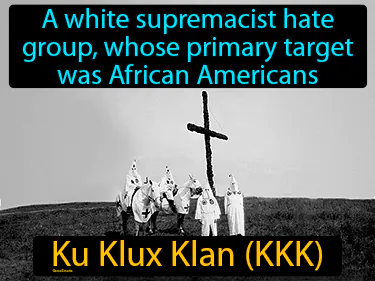
The Ku Klux Klan is a white supremacist hate group, whose primary target was African Americans. It is a racist organization in U.S. history known for promoting hate and violence against minorities.
Plessy v Ferguson
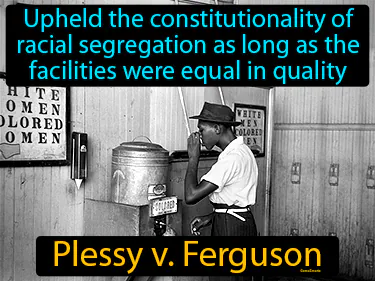
Upheld the constitutionality of racial segregation as long as the facilities were equal in quality. Plessy v Ferguson established the "separate but equal" doctrine, allowing racial segregation in public facilities.
poll tax
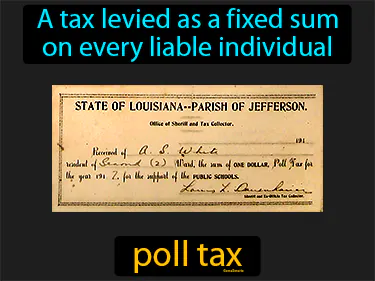
A tax levied as a fixed sum on every liable individual. Poll tax. Historically, a poll tax was used as a voting prerequisite, often disenfranchising poorer citizens.
Radical Republicans
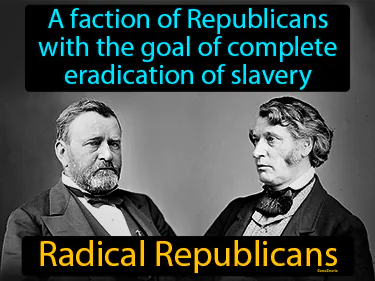
Was a faction of Republicans with the goal of complete and permanent eradication of slavery. Radical Republicans. They were a group during the Civil War and Reconstruction who advocated for the immediate abolition of slavery and equal rights for Black Americans.
Reconstruction
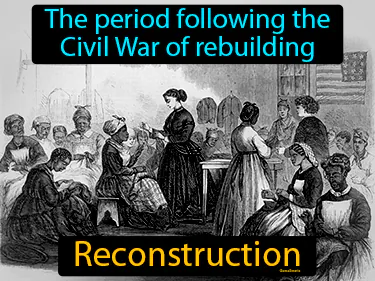
The period following the Civil War of rebuilding. Reconstruction. Reconstruction was the time when the United States worked to rebuild the South and integrate formerly enslaved people into society.
Reconstruction Acts
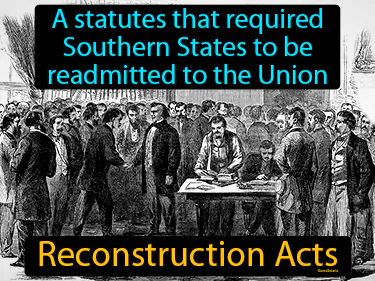
A statutes that required Southern States to be readmitted to the Union. Reconstruction Acts. The Reconstruction Acts were laws passed after the Civil War to help rebuild the South and ensure rights for former slaves.
segregation
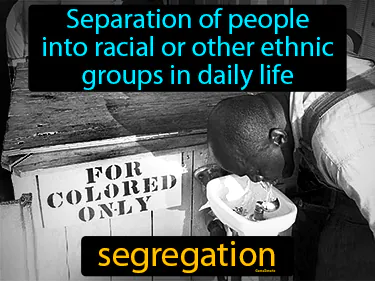
Separation of people into racial or other ethnic groups in daily life. Segregation. In history, segregation refers to the enforced separation of different racial groups in a community, often leading to unequal treatment and opportunities.
sharecropping
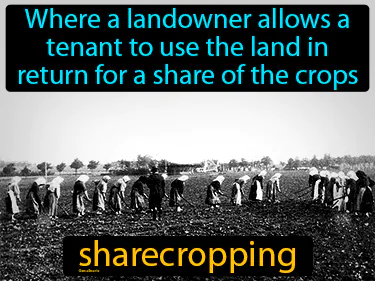
Where a landowner allows a tenant to use the land in return for a share of the crops. Sharecropping. Sharecropping is a farming system where tenants work land owned by someone else in exchange for a portion of the crops they grow.
Ten Percent Plan
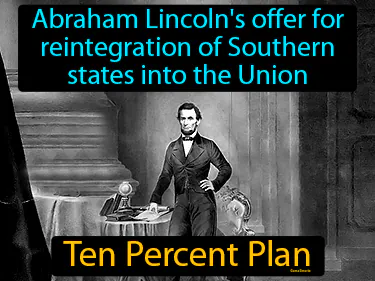
Abraham Lincoln's offer for reintegration of Southern states into the Union. Ten Percent Plan. The Ten Percent Plan was Lincoln's proposal that allowed a Southern state to be reintegrated into the Union once 10 of its voters swore an oath of allegiance.
Thirteenth Amendment
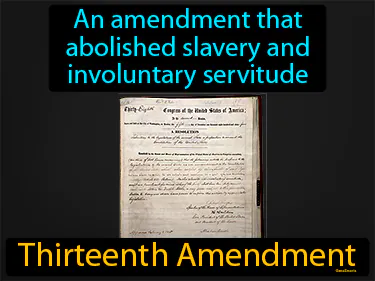
An amendment that abolished slavery and involuntary servitude. Thirteenth Amendment. The Thirteenth Amendment is a historical change to the U.S. Constitution that officially ended slavery in 1865.